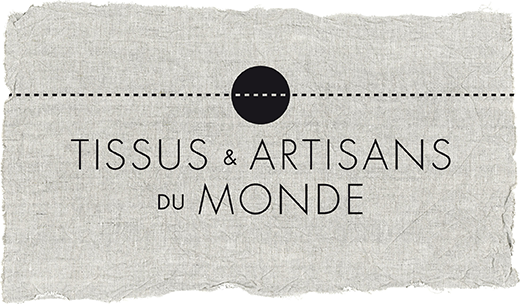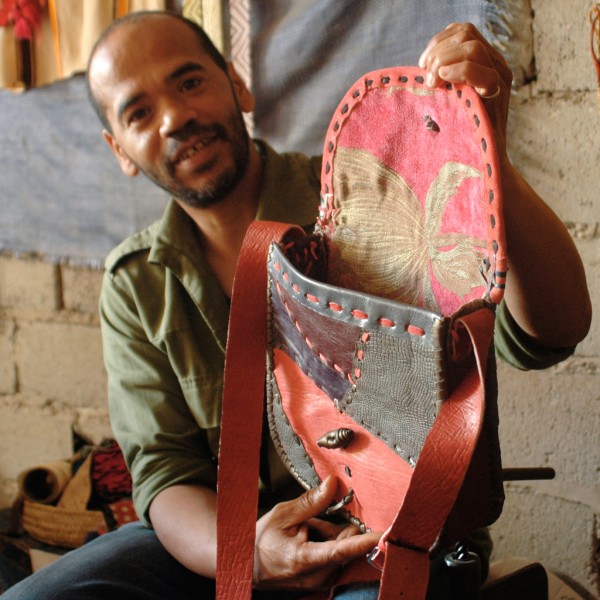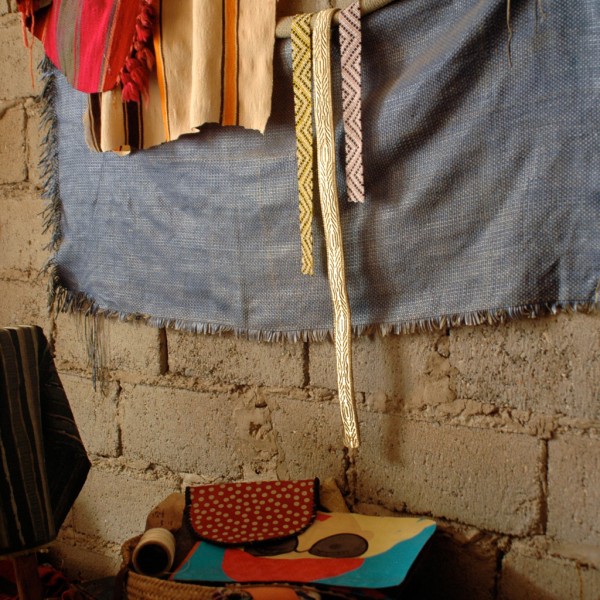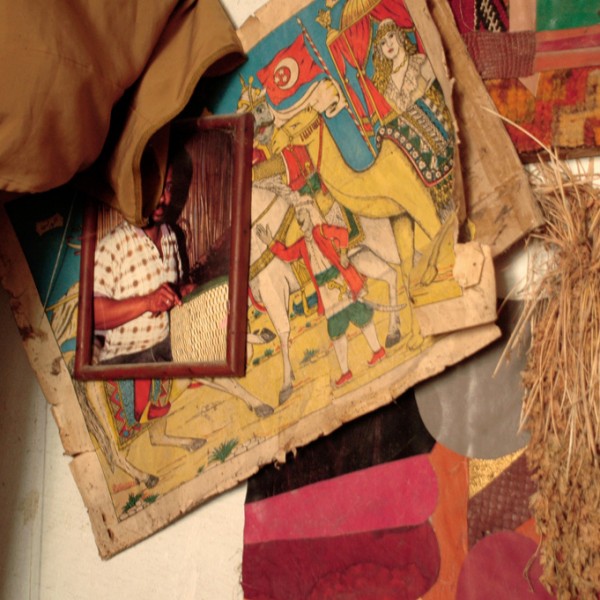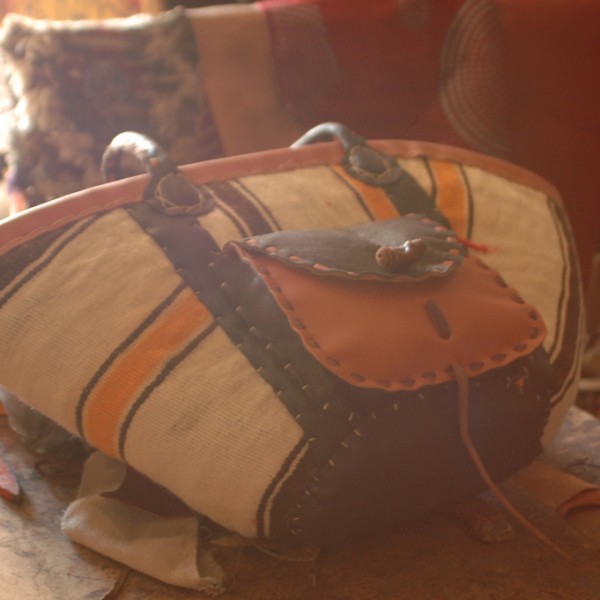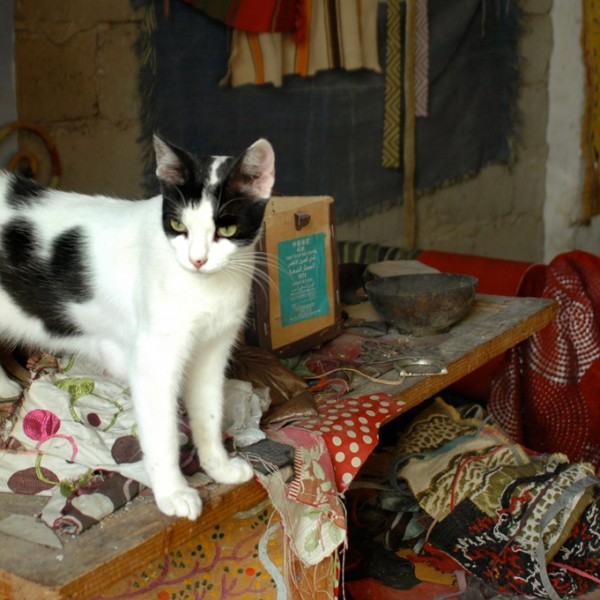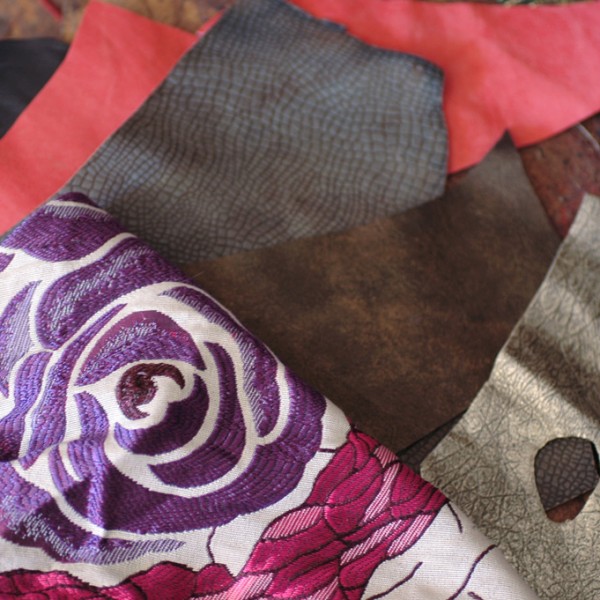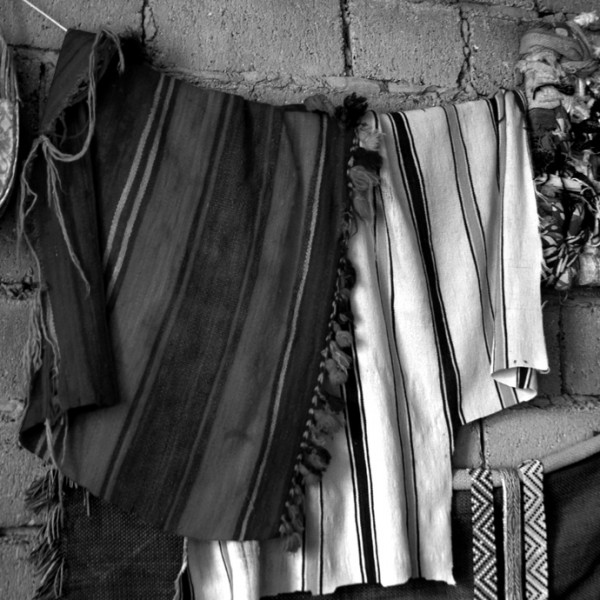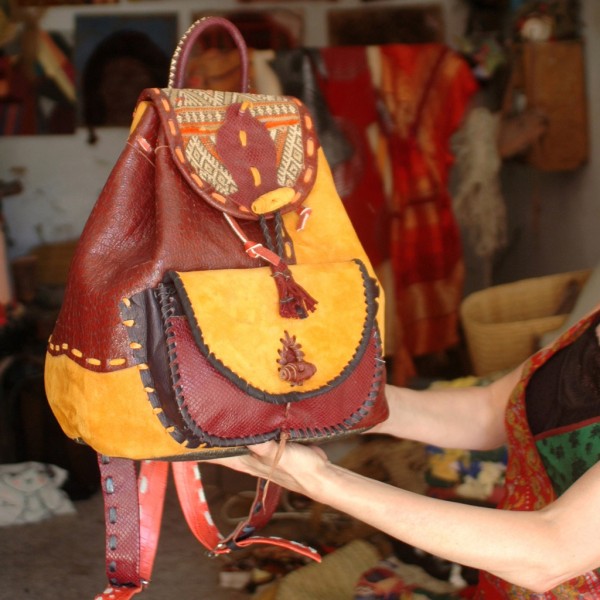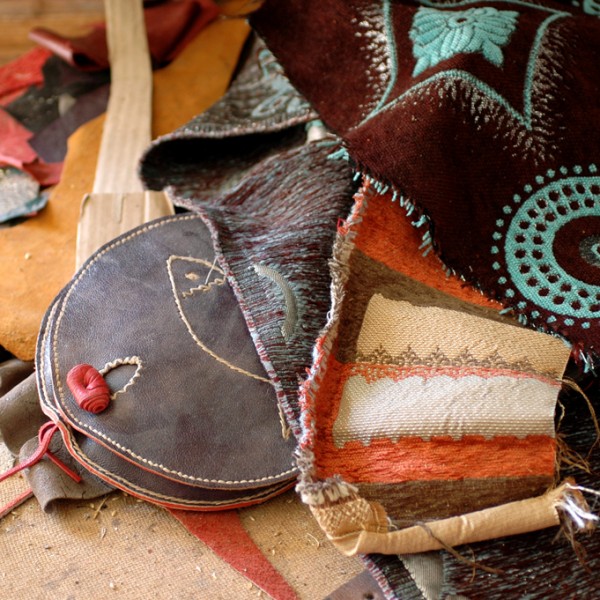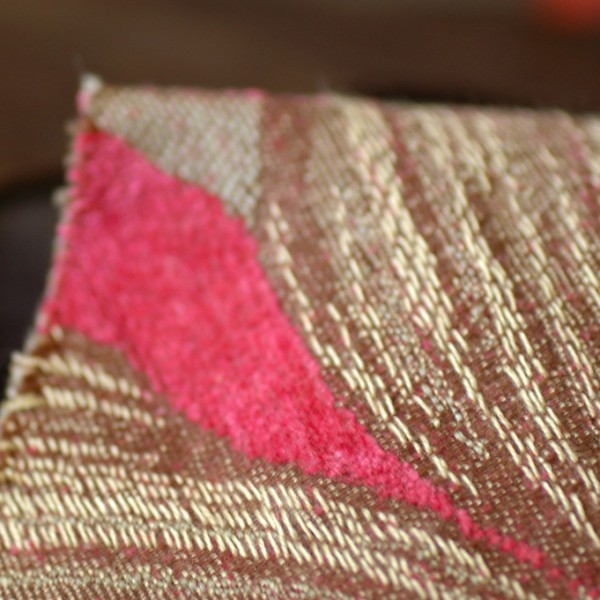The word “Maroquinerie” from the French word “maroquin” which in turn comes from the word “Morocco” refers to a tanned goatskin imported from Morocco, therefore it shows clearly to what extent this country is recognized and known worldwide as “the” place for leather crafts.
It was Maria Jose, a Spanish friend from Essaouira, the old Portuguese city on the Atlantic coast, who has introduced me to Abbes. This took place during the month of Ramadan. Abbes is leading there the quiet life of a dedicated and solitary craftsman. He lives and works in his studio near Bab Doukkala, just outside Essaouira’s medina.
There, in the midst of a poetic bazaar: frames containing old photos, paintings, a bird cage, textile fabrics, some designs, a couple of cats keeping him company and a pile of leather and various textile scraps, collected from other leather goods craftsmen and manufacturers of the city, Abbes works on his products.
This saddler-leather craftsman has made himself a specialty for leather patchwork bags and for transforming straw baskets: he “dresses” them up, covering them with pieces of fabrics and leather following his own inspiration. Hand bag, satchel, backpack, wallets, basket with a leather pouch… He creates a whole collection of original models, according to his clients wishes. Word of mouth operates pretty well for Abbes, whose work has impressed with its authenticity and personal touch. He told me he has started working leather by chance, making initially leather sieves and bellows, then he has started with the baskets about ten years ago, and then the bags. It was his uncle who trained him where he grew up, in Marrakesh. It was not initially a vocation nor a child’s dream, but the chance of life that led him to this path.
He definitely appears to be both a craftsman and an artist using his hands to make exclusive pieces. He skillfully blends colors, adding contrasted topstitchings, creating fancy buttons and playing between collected fabrics scraps and inserts of different types of leather: iridescent, grained, and nappa.
He seemed to me to be enjoying a great lot of freedom and serenity in his daily activities. Abbes does not work every day, and refuses to get involved into any kind of mass production. He works according to his orders, sometimes in the morning, sometimes in the afternoon, when he feels the inspiration coming. And for the rest of his daily routine, he reads, he walks, takes care of his cats. He just simply lives.
